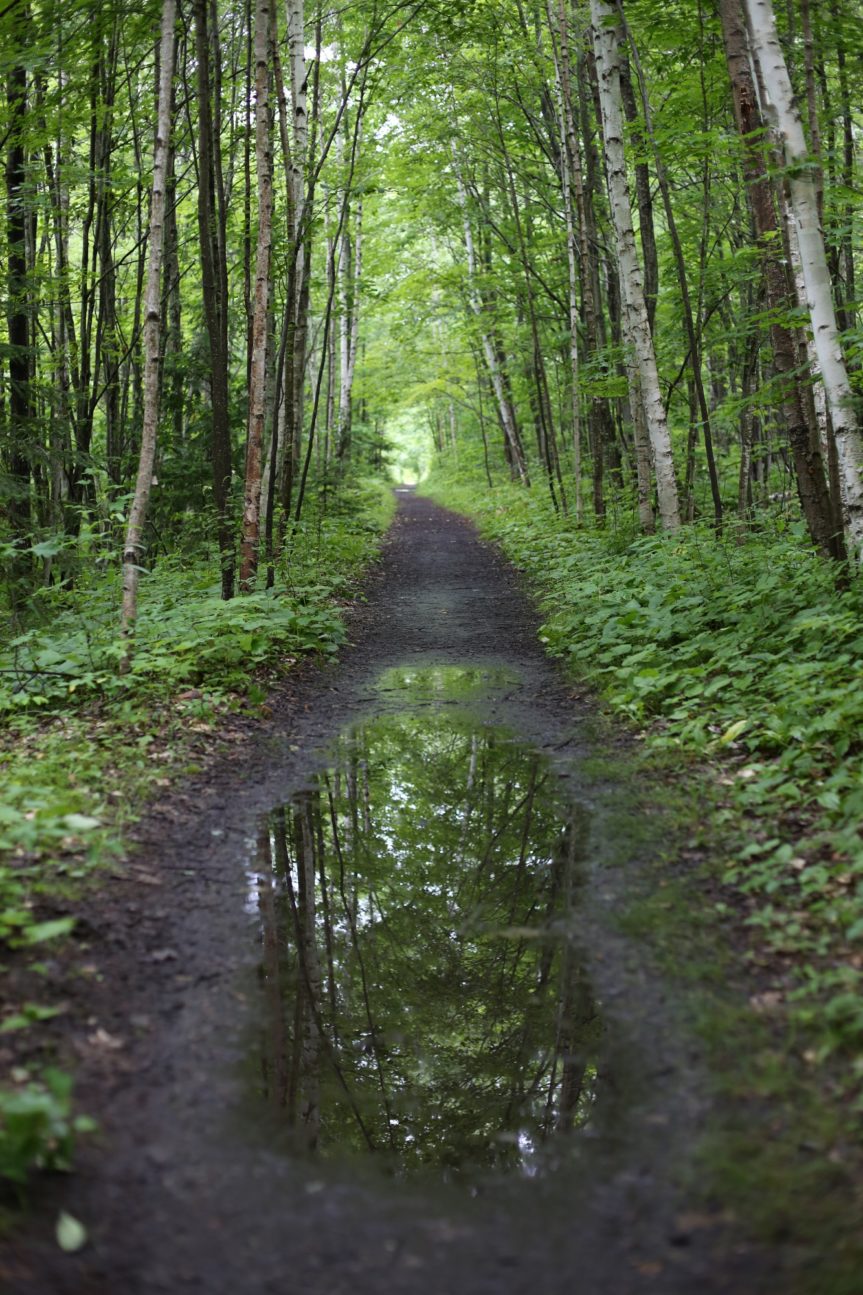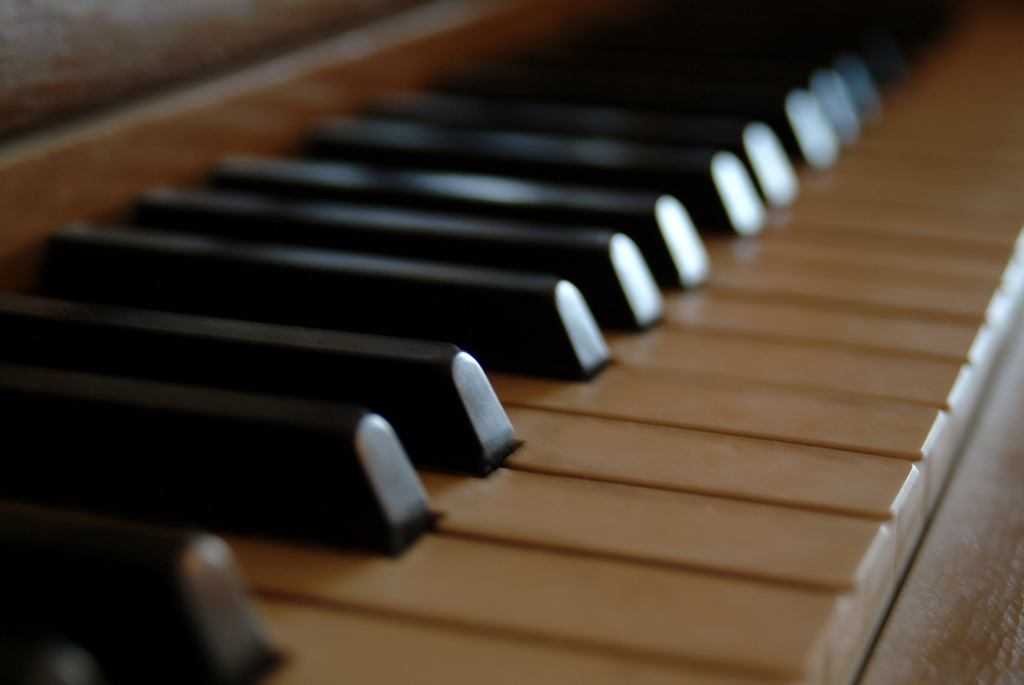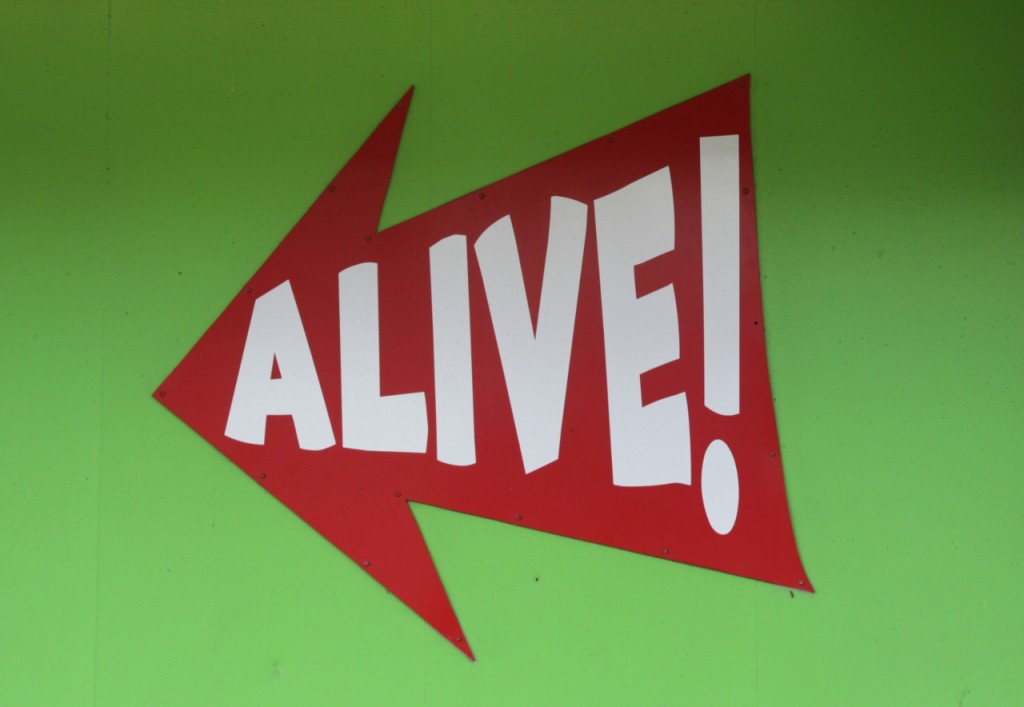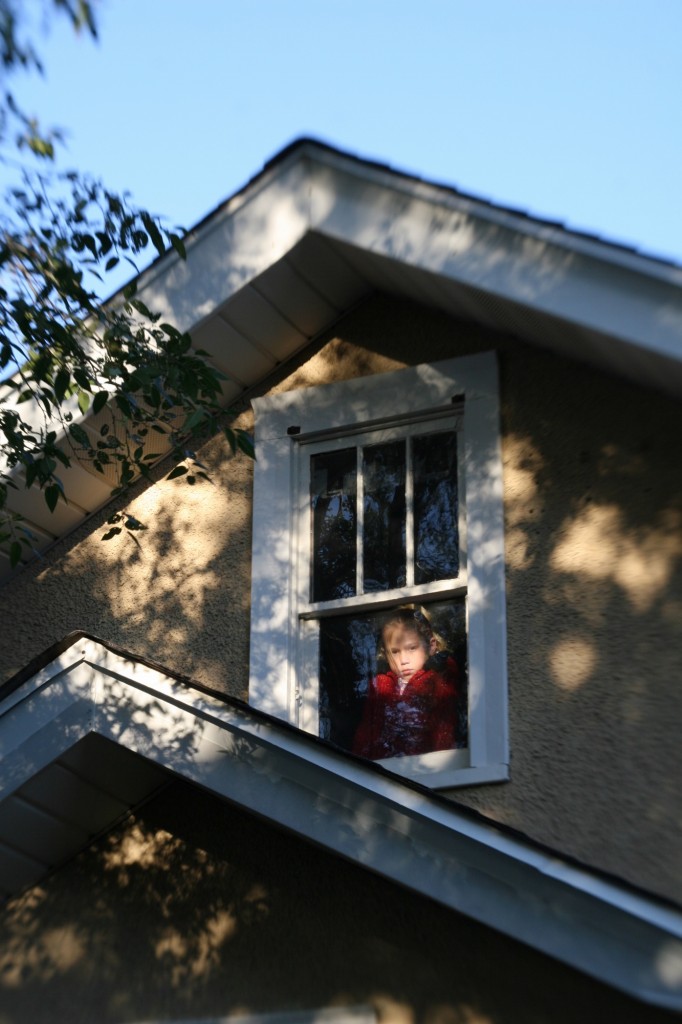Photo By Gina Easley
By Rebecca Stetson Werner
By the time she had grown sharper,…, she found in her mind a collection of images and echoes to which meanings were attachable—images and echoes kept for her in the childish dusk, the dim closet, the high drawers, like games she wasn’t big enough to play.
from What Maisie Knew, by Henry James
There was an antique chest in my childhood room at the foot of my bed. I used to sit on this chest—attending to posture, hand positioning, and embouchure—two feet planted on the wood floor, while I practiced my flute, the symphony orchestra pieces, the descant parts for the piccolo, the classical pieces I worked on for solos and auditions.
I also sat there, cross legged and folded onto myself, one elbow on my knee, when I pulled the beige trimline phone on the longest extension cord available into my room, the receiver propped on my pillow. While I riffed the flute part to Duran Duran, my best friend did the same, but in awesome harmony, on her end of the line crackling with the exertion of extending our across town connection through that twenty-foot cord.
A few years ago, my bedroom became an office, as happens to the smallest room in the house when children grow up, and I spent time sorting through that chest. Lifting the lid for the first time in years, I smelled my grandparent’s house, from whom this chest had been inherited wafting from it. On top of the chest’s contents were a collection of ziplocked bags that surprised me; my mother had placed them there, saved and labeled as she cleaned out closets and drawers and nooks in their home. One bag held my Brownie uniform, pressed, the badge sash showcased. Below that, the prairie dress my mother and I had made together, during my Laura Ingalls Wilder phase. Then, the snazzy orange and gold asymmetrically off-one-shoulder leotard, with, well, a diagonal stripe of yellow fringe, with not quite matching, spray painted orange ballet shoes, my costume the year my jazz dance class danced to the Eye of the Tiger. Also, the felt hand puppets I crafted as a visual aid for my middle school book report on Jane Eyre. Yes, I do realize middle school is not the appropriate time to present your book report as a hand puppet soliloquy, but then, middle school is also not the time to be reading Jane Eyre, so apparently I was just letting my freak flag fly. The black felt glasses dangled from Mr. Rochester’s chin.
Once I’d excavated below this perfect collection of my seventies’ childhood, I came to the items that I’d placed in the trunk myself over the years I lived at home, before I left for college. The first item was my trusty, and in some places, now rusty, folding metal music stand, the kind with a telescopic pole and a music holder that collapses like an umbrella, the legs folding up and snugging against the pole. I used this stand to practice in my room, but I also carried it with me to rehearsals, to music camps, and overseas when I travelled with my music groups. Wrapped around the pole was a carefully wound piece of narrow white adhesive tape, the kind with the almost lacey edge, the adhesive still strong, but oozy and gooey in its age. On the tape, in my younger-self handwriting, was my childhood name, now replaced with Rebecca: Becky Stetson.
Below that stand, I came to what I was looking for, my mementos: dried prom flowers, ticket stubs to concerts, fragments of poems, a pair of bright blue lightning bolt earrings I bought at Hampton Beach, some pictures from photo booths with friends, all of us permed, hair sprayed, lip glossed and fabulous, the strips of photo paper now curling and yellowing. A smooshed penny a friend had handed me, asking, Can you keep a secret? The penny that revealed she was freshly back from breaking school rules by sneaking away during recess to retrieve the coins she had laid on the railroad tracks that ran behind our school. I could, and despite my concern, I had. Inside my royal blue bedazzled and bestickered Trapper Keeper, I found a torn page, the early draft of a poem I wrote late one night while listening to Peter Cetera on repeat through my giant face squishing headphones, about a boy who had broken my teenage heart, a poem that later inspired the Shakespearian-ish love sonnet assignment I had in college, when he and I were still entangled, back then the best model I had for love. And under them, a small stack of letters, each one written in the same small handwriting, folded carefully as though to contain the words they held that were never spoken aloud.
Dear Rebecca, they all began. These letters to me, about places and events and feelings that happened so many years ago, are written to a girl I no longer am, but using a name that I have now claimed. Jarred by the mixing of past and present, this small stack of letters sent me immediately to a certain place in the woods, down a long unpaved road.
•••
We were often running late and driving fast in our borrowed and beaten family cars when we bounced, squeaked, and scraped down an unmaintained dirt road, taking curves we knew by muscle memory. Our real lives were in various public schools. A cloud of dust billowed behind us in the growing darkness, trying to keep up, until we lurched to a stop, that dust now having the advantage of movement, enveloping the car in a dry unfocusing haze. The road ended in a large parking lot bordered by a river on one side and a steeply graded and heavily wooded hill on the other. Cut into that hill were crooked stairs made of railroad ties leading to a low one-story building. The double doors to a large gathering room in that building opened wide, light spilling into the woods; a curtained window in a door to the small office beside it glowed but dimly.
Pulling into a parking spot as others skidded into theirs, emergency brakes screeched, and after a quick check of our hair and a glance into our own eyes for reassurance in the rearview mirror, doors flew open, and we unfolded lengthening legs and planted our feet on the dirt. We stretched, assessed, and observed each other for a few brief moments before we reengaged in chaotic movement, calling to a friend across the parking lot, teasing, and laughing. We rushed to the backs of our cars, grabbed for the worn leather wrapped handles of black cases of various shapes and sizes and hauled them out, then reached back in for our uniform black vinyl music folders with our free hands. Adjusting ourselves to the familiar weight of our instruments, whether they were flutes or french horns or drum sticks, we slammed the trunk shut and lugged our instruments and tardy selves breathlessly up those stairs. All to pause in the doorway from woods to inside, blinking as darkness became light.
The room teemed with movement and sound, a low breathy murmur of voices, chatting, flirting, and a steady pulse of blushes, glances, turning of knees and widening of eyes toward and away. The sudden jarring sound of furniture being slid across the concrete floor percussed the din, brass instruments making blatting approximations of body functions, cases being slammed shut and music stands toppling over, the rising and falling of warm-up scales. Jolted back into forward motion by a smile from a friend I found in the crowd, my assigned seat beside her, I entered the shimmering blob of happy energetic teenagers in all their oafish pimply hormonally gorgeous glory.
There remained a few empty seats in our arch of chairs, those of the officers of the symphony, still in a meeting together behind the closed door between us and the small adjacent office. That office, I knew, was stuffed with files and a desk belonging to the one adult out there in the woods each night. Once a week, eight folding chairs were carried by eight teenagers, many of whom were my friends, and stuffed amongst the clutter of that office for a weekly meeting before the rest of us arrived. The officers, the symphony’s version of the popular crowd, who dated other first chairs, were selected for solos—my stomach fluttered and a blush rose when I squeezed past them in the black narrow halls of the concert hall dressing rooms—were rumored to have outside gatherings and special events with our director. I was never a part of that small group, despite moving from last chair in the flute section to first during my years there, and I was envious of them.
A few minutes before the hour, the door to the office opened, and out spilled the small group of officers. As they moved through the door from the cramped quiet space to the large noisy room, mid-sentence with each other, a private joke or whispered comment passing between them followed by a look over their shoulder back into the office, their eyes and attention passed from each other to the synchronized rumpus before them, to us, the until now unsupervised and unruly crowd.
In moments, their tense composure, edgy reserve, and self-conscious swagger morphed as they grabbed their instruments and music and slid into their own places, cast grins and quick words to those nearby, and an easy loosening and perfectly teenagery slouch returned to their bodies. We non-officers made biting envious comments to each other about the injustice and unfairness of who was chosen by the director, typically boys, to be officers. But friends nonetheless, we swallowed them up, and we swirled and pulsed and giggled and sagged and bleated until at the same time each rehearsal, two minutes past the hour, when a long sustained floating A became discernible amongst all the other noise. Slowly, as though filing into line, we placed our folders on our music stands and swung them open, pushed cases under our chairs, straightened our posture, and phrases and warm-ups and noise faded as each musician began to tune themselves to that note. The director emerged from the office as the last of us made our pitch adjustments and walked to his position in the center of our half circle configuration, pulled his baton from his pocket, opened his own black music folder, and then, and only then, looked up at us. He could expect to see all of us, quiet now, looking right back at him. We were ready to play.
It was a flawed place, competitive, stressful, and it operated on favoritism and unspoken rules. But we were thankful for this place nonetheless and for the music we could skillfully make together. We came from public schools where the music programs were underfunded, nonexistent, troubled by difficult behaviors or missing brass sections, where clarinets squeaked when phrases were technical, trumpet players blatted and lost their embouchures mid solo, and cymbals clanged grandly and unintentionally comically, just after the final beat. More importantly, we all loved this place for what it held for us beyond music.
For that teeming rhythmic mass that we entered each rehearsal, in a place in the woods far away from where we spent the rest of our days, and for some of us, far away from our other selves. Where we could interact with each other without much adult supervision, play around with our growing independence and competence and desire to be connected, seen, and feel close to one another. In this place I worked out the art and power of careful attention, of observation, and how to wield it, watching sideways as I put together my flute what was new in the room each rehearsal, a new flirtatious coupling perhaps, someone who seemed a bit off—I was figuring out where I wanted to be in all that. Where we could imagine or act out our antics within a small and safe group, and experience all the earth-shuddering boiling waves of happiness, anticipation, hope, failure, and pain that is the music of the teenage years.
•••
There is in every child at every stage a new miracle of vigorous unfolding, which constitutes a new hope and a new responsibility for all.
Erik Erikson
I’m struck by just how much detail I remember about this place from so many years ago, the distance of time, place, and who I was then seeming so vast. There’s a well known phenomenon in memory studies, referred to as the reminiscence bump, in which we remember more from our adolescent years than from any other time in our lives. Much has been learned in the past few decades about brain functioning and development, and particularly about the unique changes and processes that are characteristic of the adolescent brain, developmental changes occuring in levels of arousal, reactivity, and emotionality. During these years, the influence of experience on the brain is particularly strong, and teenagers remember more, both the thrilling first encounters and the mundane moments. The adolescent brain becomes more sensitive to and aware of social information, more interested and responsive to reward, and less responsive to perceived risk, likely controlled by changes in the the brain’s reward system, specifically the dopamine system. Adolescents are more attuned to the world, more likely to be influenced in enduring ways.
I’m able to call up the smell of those woods, the feeling of navigating those strangely spaced stairs, too short and shallow to be able to run up using my normal stride, too far apart to skip a step in between, the flutter of my stomach in those seconds between turning my car’s engine off and pulling on the car’s door handle, caused by both excitement and anxiety.
I’m made anxious all over again remembering the rehearsals when the director imposed unannounced practicing inspections, during which, after obvious wrong notes came a few too many times from a particular instrument section, our director became calmly enraged, a combination I found terrifying, slowly placed his baton on the music stand, and left the room. A few seconds later, we heard a slow motion scratch, as he dragged a chair from his office and returned to his conductor’s stand. And then, he pointed that baton at each member of an instrument section, one after another, and had you play that section alone. If you flubbed, whether due to lack of practicing or for me, the sudden onset of full bodied prickling of nerves, uncontrollable sweat, and fingers that refused to move, our director gestured with his baton a shameful half do-si-do with the person beside you, moving down in moments the ranks you had slowly, arduously, intentionally toiled to move up for years.
There was a brief period when I eagerly waited for a boy to pick me up and drive me to those rehearsals. I waited for him in the large picture window of our house in a cul de sac, and upon his appearance round the turn at the end of our street, I dashed out of my house and down the hill to his car, as he hopped out and flung open his roof for our drive. As we zipped down the street, my hair blew in my mouth and flicked into my eyes, though I could still see my parents’ panicked faces watching from that same picture window, scanning for a seat belt, tires that were all inflated, two teenage boy hands on the wheel.
Those days we flew down that long dirt road hitting every pothole squarely, spinning out on the sharp turns. For that brief time, I had someone to run up those steps toward the bright spilling light and enter the noise with, together. Where the regular beat of the room was augmented by sensorial spikes from the stomach fluttering thrill of finding him across the room watching me, sensing his eyes on my back, sitting two rows behind me, the thrill when he jogged over during breaks, saxophone around his neck, and skillfully slinked around the music stand and into the empty chair beside me for a quick chat and a brushing of our hands against each other.
And it was in that room that I lost that first boyfriend to the first clarinet player. The girl who sat straight across from me for a year, just the director’s music stand between us, that stand disappointingly unreliable in helping me hide from her adoring eyes for my now ex-boyfriend who still sat straight behind me. During breaks I practiced controlling eye gaze and facial expression, whispering animatedly to my friend on my right and neglecting anything to my left to avoid taking in their lusty canoodling against the line of folded chairs in the corner.
There are so many parts I can pull out of the auditory stew of that room and the world it opened to me. I’ve drawn on this place, this time, and all of the experiences and feelings and firsts I had as a result of it. These experiences are uniquely mine, and I pull them out at different moments for different purposes. As a parent, I use the pain, loss, awkwardness, and simmering yuck to remind myself of how huge this all feels to my children as well. I sometimes completely ham up the band nerd part of my past, when I am trying to amuse them. What I know from back then: that no lost love ever chooses to move on with someone you do not run into often. I think of the trips where we traveled and performed in other countries. The pictures I found online of the cool kids, including that boy, obviously in his after me state, which was curiously much cooler, longhaired, arguably hot, and not mine, playing hacky sack, while in the periphery, I found me, permed and not so fabulous, sitting with my kind but nerdy friends snort laughing at jokes in the shadows of the Alps.
I had my narrative I had woven about this place, in the woods, at the end of a long road, where we went and left our parents behind and felt things more strongly than we ever would again. About what it held for me, the opening of myself, the growth, the feeling of belonging, of being seen and held and let go. Now, it also holds explanations for both who I have become, and who I have chosen not to be. It holds the people and things that I no longer have in my life, like the smell of hairspray and burning hair, a childhood nickname. Observing it across these years and from afar, my own teenage children standing at my side, I feel the strength a place like this gave me, but also the power it held over me.
•••
The developing brain is sculpted both by passive exposure and by active experience. That means that before your brain has fully matured, we can be affected, in potentially permanent ways, by every experience, whether it’s positive or negative, whether we understand it or not—in fact, whether or not we are even aware of it.
from Age of Opportunity, by Laurence Steinberg, Ph.D.
Dear Rebecca,
It’s an email from him, but as I read it, the text changes into his small tight handwriting in that stack of folded letters, the convertible driving lanky armed saxophone playing boy from thirty years ago. His character has been re-sorted multiple times over the years, from love to villain, friend to past. That boy, his car, his attention to me. He was the one I chose to stand beside in those years of growth, caring and hurting and being changed by each other. Who wrote to Rebecca back when I was still Becky, somehow knowing enough, more than I did then, of who I would become.
Have you heard about our band director? he writes one day, after we’ve exchanged a few emails, reading in each other’s messages who we have both become, as well as tentative glimpses at who we were to each other back then.
No. What? That’s all I write, but in my mind I am instantly and unwittingly thrust through a door of yet unrealized possibility. I know what he is going to tell me, his question enough to allow what was passive to become active, to open my eyes to other details in that room that had been there and encoded, but never in my full awareness. And soon, from across the country, this man writes to me of what he has learned, of allegations of our director’s sexual misconduct toward children, of secrets, of hurt, charges made but never proven. He’s reaching out, pulling me to stand beside him, a person from his past who saw what he saw, who needed this place as much as he did, to re-sort and discard and insert this new possible truth. We stand together, on opposite sides of the country, knowing very little about who each of us has become, and look back. I think back on gossip, glances, and silence, and I realize that what I interpreted as favoritism, or sexism, was potentially something far worse.
As we re-enter that room of adolescent haze and first experiences together, walking through it now as adults, adults with teenage children, suddenly it’s the light behind the office door that’s more in focus than the dizzying whirl of the larger space we shared and stirred. I turn to this man, holding the echo of that boy for him and he the echo of that girl for me, with whom I had my first intense relationship, a relationship I am beginning to realize formed amidst darkness and confusion, oozing between us and within us and around us in that room, a part of our own growth. And I realize. This place that we protected as uniquely our own, when we were there, and after. It did not protect us.
I wonder what I knew and didn’t know. What my limited experience and exposure kept me from understanding. What I attended to, as I was developing my own control of attention, observation, and influence. I grew up, married a different boy, became a parent, and watched my own children be whisked away while I observed from my own windows. And still. It was not until the question was raised by a boy from my past that I ever connected the things I learned and experienced later to what was happening beyond my awareness back then. That boy who knew a bit of my future pulled me back to better know, to attach meaning to, my past.
•••
What do you do when your story gets refocused and rearranged? What do you do with the telling of something that you feel shame, sadness, remorse, guilt, and yes, relief, about? How do you accept that a place, a person, a decision, a time, can allow such vigorous unfolding and potentially cause such debilitating harm?
Only now, as an adult, can I begin to fully realize the awful possibilities of things that can happen when vulnerability and power collide. By protecting this place as ours, as a refuge to grow and to change, in this messy, reactive, encircling, feral world we lived in at that age, we interpreted what we saw with the capacities of a child’s mind, through the lens of our self focus and experience. We held back information that might have allowed other adults, with their more mature understanding and experience of darker truths, with their awareness of things outside of that room, as less egocentrically and hormonally motivated people, to have sensed or realized that something was very wrong.
These days, there’s much discussion in the world about how these things happen, how a culture of abuse, of misused power, imbalance, physicality, and need, creates conditions in which so many small offices with closed doors can exist. As growing numbers of these rooms, rooms framed by walls and rooms framed by access, information, and privilege, come into focus. I’m beginning to understand the forces that keep these doors closed. And I am realizing that we all have the power to, and a role in, hurting others. By such simple acts as what we attend to. And what we do not.
I’m turning my awareness now to that door to a small office of my childhood and filtering out normative adolescent developmental noise, focusing, listening now to the vulnerabilities and losses and hurt that can be within that amalgamated sound as well. When back then it was all about the sound, the reward, the responsive movement between people, now I’m hearing more in the silence, the pauses, the turning away, the action that was out of step with the overall mass. I’m holding that all, adjusting, trying to learn to listen better.
We have a lot to learn from our own adolescent selves as adults caring for children in the grip of adolescence. We have a lot to learn from our children about who we are, and what we are capable of, as well. My daughter is reading the Book Thief by Markus Zusak, about a family in Nazi Germany during WWII. I’m editing her term paper, and she has chosen the following quote to write about:
I wanted to explain that I am constantly overestimating and underestimating the human race—that rarely do I ever estimate it. I wanted to ask her how the same thing could be so ugly and so glorious, and its words and stories so damning and brilliant.
from The Book Thief, by Markus Zusak
She’s now the age I was when I first noticed that boy across the room. She’s grappling with this quote and the ideas it holds, thinking about the coupling of ugly and glorious. She has the words, the exposure, the concept that these are parts of one another. But I still think, that when placed in a room of brilliant noise, she wouldn’t recognize the darkness. For this, for so much, I am grateful. Do we have a right to ask our teenage selves, or our own teenagers, to be hyper vigilant? To open their eyes to potential evil and danger? Do they lose something if we do?
•••
REBECCA STETSON WERNER lives in Portland, Maine, with her husband and three children. Her essays have been published by Full Grown People, Taproot Magazine, Mamalode, and Maine the Way.


 Follow
Follow




